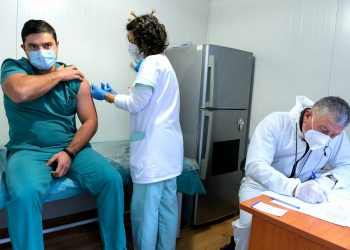Italian cities have taken urgent measures to control the Coronavirus outbreak. Europe is trying to stop COVID-19 and Italy suspends public events following the deaths of two people and more than 150 infections. Venice has suspended its Carnival celebrations due to the virus outbreak.
The Venice carnival
Italian authorities announced that events related to the famous Venice carnival would be stopped as the country became the first one in Europe to have a national die from the COVID-19 virus. The Italian government will take “extraordinary measures” to fight the coronavirus following the deaths of two citizens.
Prime Minister Giuseppe Conte expressed his sympathies for the two who passed away and said he had called an emergency meeting. On Saturday in Brussels he said that there is at present no need to close down the Schengen area of border-free movement because of the Covid-19 virus. Probably he has changed his mind and he called italian authorities for an emergency – extraordinary meeting.
– Can the close down of the Schengen area stop Coronavirus outbreak?
Prime Minister Giuseppe Conte declared the mandatory isolation of all people who were in contact with those who tested positive for the coronavirus. In the meanwhile italian authorities have closed down public buildings, canceled football matches and closed other central places where people gather in towns in the north of the country to try to halt the spread of the infection.
Is Europe ready to fight COVID-19 and coronavirus outbreak?
Mr. Janez Lenarčič, European Commissioner for Crisis Management, in charge of European Civil Protection and Humanitarian Aid, claims:
We must work on all fronts simultaneously to fight COVID19.
Mr Lenarcic highlights that latest cases in Europe show that global cooperation is crucial in stopping the virus spread and protecting EU citizens. European Union and China are working closely together.
As the European Emergency Response Coordinator, Mr. Janez Lenarčič is responsible for the EU Civil Protection Mechanism. The overall objective of the EU Civil Protection Mechanism is to strengthen cooperation between the EU Member States and 6 Participating States in the field of civil protection, with a view to improve prevention, preparedness and response to disasters. When the scale of an emergency overwhelms the response capabilities of a country, it can request assistance via the Mechanism. Through the Mechanism, the European Commission plays a key role in coordinating the response to disasters in Europe and beyond and contributes to at least 75% of the transport and/or operational costs of deployments.
EU Commissioner for Health
Also EU Commissioner for Health, Ms Stella Kyriakides posted on Twitter that EU is following the situation in Italy very closely and commends the Italian authorities for their swift and efficient action. EU Commission stands ready to provide support. It is only together that we can contain the spread of the #COVID19.
We are following the situation in Italy very closely and commend the Italian authorities for their swift and efficient action. @EU_Commission stands ready to provide support. It is only together that we can contain the spread of the #COVID19.
— Stella Kyriakides (@SKyriakidesEU) February 23, 2020
Arrival and doorstep by Stella Kyriakides, European Commissioner for Health and Food Safety, at the Extraordinary Employment, Social Policy, Health and Consumer Affairs Council (Health), took place on 13 February 2020, in Brussels.
Coronavirus outbreak: Global alarm grows. Is Europe ready?
Disasters know no borders and can hit one or several countries simultaneously without warning. Having a well-coordinated joint response means that when national authorities are overwhelmed, they have one point of contact, rather than multiple to deal with. A joint approach further helps to pool expertise and capacities of first responders, avoids duplication of relief efforts and ensures that assistance meets the needs of those affected.
By pooling together civil protection capacities and capabilities, it allows for a stronger and more coherent collective response. In addition to the EU Member States, there are currently 6 Participating States to the Mechanism (Iceland, Norway, Serbia, North Macedonia, Montenegro, and Turkey). Since its inception in 2001, the EU Civil Protection Mechanism has responded to over 330 requests for assistance inside and outside the EU.
The EU Civil Protection Mechanism also helps to coordinate disaster preparedness and prevention activities of national authorities and contributes to the exchange of best practices. This facilitates the continuous development of higher common standards enabling teams to better understand different approaches and work interchangeably when a disaster strikes.
South Korea is on highest Coronavirus disease alert as cases raise to 556
The Korean Centre for Disease Control and Prevention (KCDC) reported 123 new cases and raises virus alert to ‘grave’ as total infections raise to 556. President Moon raises alert to highest ‘red’ level saying the next few days from now is a very important moment. Says the government will not hesitate to take “unprecedented powerful measures” to contain COVID19 as total no of confirmed cases reach over 500.
The Coronavirus outbreak has reached “a crucial watershed” and that the “next few days will be a very important critical moment.
President Moon Jae-in
UPDATES: ?1) S Korea raised its alert to the highest level after cases increased 10-fold in 4 days.
?2) In Japan, passenger on ? Princess? tested positive after arriving home, despite a *negative* reading during ship’s quarantine. #COVID19 #SARSCoV2 https://t.co/6UJFTcxQDk— Eric Feigl-Ding (@DrEricDing) February 23, 2020















